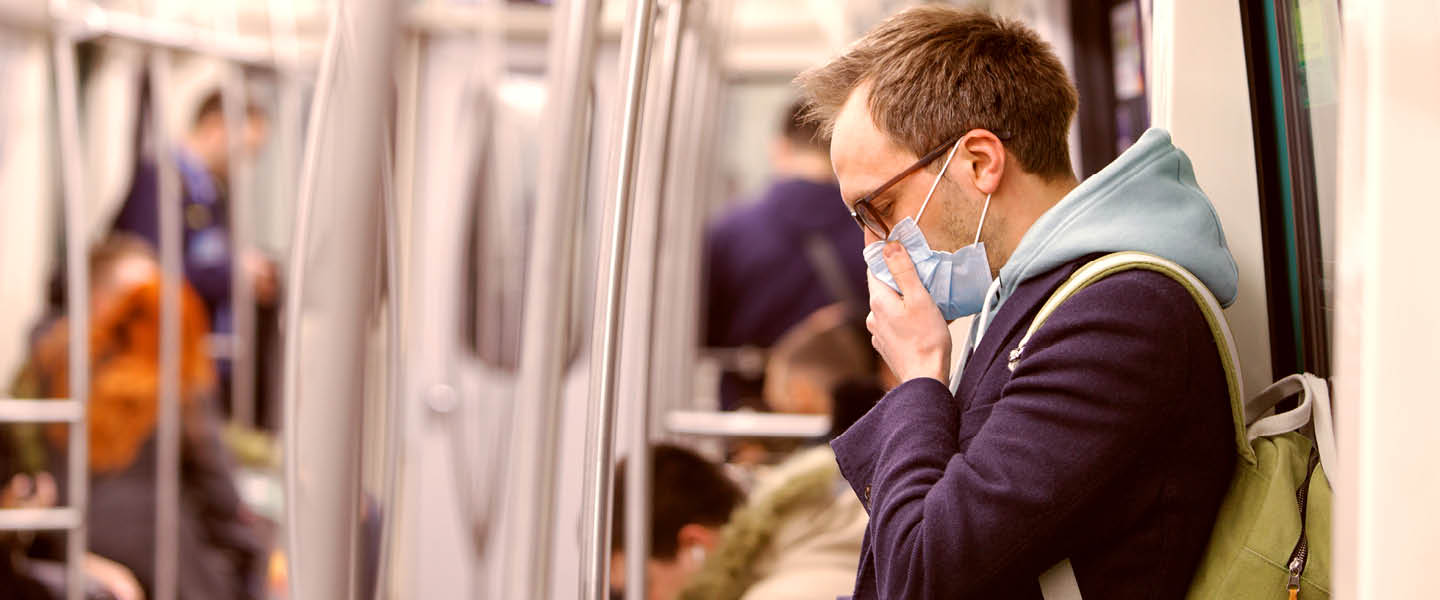-
Financial administration
An accurate financial administration provides you with the information you need to take the right decisions. The big advantage of a digital financial administration is that it provides insight into your most important financial processes at any time, whether this is the invoices, salary payments or bank changes.
-
Financial insight
You want to take the right decisions, based on trustworthy and clear management information. You want to have access to all your financial data, 24/7, in order to determine your position and be able to adjust where necessary.
-
Global compliance partnering
Outsourced compliance services comprises the total financial compliance of your business, in accounting, financial reporting, payroll, legal and various tax reporting obligations. We can make sure you don’t have to worry.

-
Business risk services
Minimize risk, maximize predictability, and execution Good insights help you look further ahead and adapt faster. Whether you require outsourced or co-procured internal audit services and expertise to address a specific technology, cyber or regulatory challenge, we provide a turnkey and reliable solution.
-
Corporate finance
Finding a suitable match at the most optimum terms. That, in a nutshell, aptly describes the objective of mergers and acquisitions. To most businesses mergers or acquisitions are not standard daily practice. It is, however, for the professionals at Grant Thornton! Seeking their services will add value instantly.
-
Cyber risk services
What should I be doing first if my data has been kidnapped? Have I taken the right precautions for protecting my data or am I putting too much effort into just one of the risks? And how do I quickly detect intruders on my network? Good questions! We help you to answer these questions.
-
Impact House
Building sustainability and social impact. That sounds good. But how do you go about it in the complex world of stakeholders, regulations and frameworks and changing demands from clients and society? How do you deal with important issues such as climate change and biodiversity loss?
-
Transaction services
What will the net proceeds be after the sale? How do I optimise the selling price of my business or the price of one of my business activities? How do I capitalise on synergies following an acquisition? Am I not offering too much? These are all good questions when you’re buying or selling a business. It’s a transaction that concerns significant amounts, impacts your future, and therefore must be executed properly. We provide a solid foundation for your decisions.
-
Valuation, investigation & dispute services
Do you require a fact finding investigation to help assess irregularities? Is it necessary to ascertain facts for litigation purposes?

-
Auditing of annual accounts
You are answerable to others, such as shareholders and other stakeholders, with regard to your financial affairs. Financial information must therefore be reliable. What is more, you want to know how far you are progressing towards achieving your goals and what risks may apply.
-
IFRS services
Financial reporting in accordance with IFRS is a complex matter. Nowadays, an increasing number of international companies are becoming aware of the rules. But how do you apply them in practice?
-
ISAE & SOC Reporting
Our ISAE & SOC Reporting services provide independent and objective reports on the design, implementation and operational effectiveness of controls at service organizations.
-
Pre-audit services
Pre-audit services is all about making the company’s entire financial administration ready for checking before the external accountant begins his/her audit of the annual accounts.
-
SOx law implementation
The SOx legislation dictates that management is structurally accountable for reporting on the internal control relevant to the financial statements.

-
International corporate tax
The Netherlands’ tax regime is highly dynamic. Rules and the administrative courts raise new challenges in fiscal considerations on a nearly daily basis, both nationally and internationally.
-
VAT advice
VAT is an exceptionally thorny issue, especially in major national and international activities. Filing cross-border returns, registering or making payments requires specialised knowledge. It is crucial to keep that knowledge up-to-date in order to respond to the dynamics of national and international legislation and regulation.
-
Customs
Importing/exporting goods to or from the European Union involves navigating complicated customs formalities. Failure to comply with these requirements usually results in delays. In addition, an excessively high rate of taxation or customs valuation for imports can cost you money.
-
HR services
Do your employees determine the success and growth of your organisation? And are you in need of specialists which you can ask your Human Resources (HR) related questions? Human Resources (HR) related questions? Our HR specialists will assist you in the areas of personnel and payroll administration, labour law and taxation relating to your personnel. We provide you with high-quality personnel and payroll administration, good HR guidance and the right (international) advice as standard. All this, of course, with a focus on the human dimension.
-
Innovation & grants
Anyone who runs their own business sets themselves apart from the rest. Anyone who dares stick their neck out distinguishes themselves even more. That can be rather lucrative.
-
Tax technology
Driven by tax technology, we help you with your (most important) tax risks. Identify and manage your risks and become in control!
-
Transfer pricing
The increased attention for transfer pricing places greater demands on the internal organisation and on reporting.
-
Sustainable tax
In this rapidly changing world, it is increasingly important to consider environmental impact (in accordance with ESG), instead of limiting considerations to financial incentives. Multinational companies should review and potentially reconsider their tax strategy due to the constantly evolving social standards
-
Pillar Two
On 1 January 2024 the European Union will introduce a new tax law named “Pillar Two”. These new regulations will be applicable to groups with a turnover of more than EUR 750 million.
-
Cryptocurrency and digital assets
In the past decade, the utilization of blockchain and its adoption of a distributed ledger have proven their capacity to revolutionize the financial sector, inspiring numerous initiatives from businesses and entrepreneurs.
-
Expand into new markets
Do you seek for opportunities in the global business arena? Whether you are about to open a new office in a foreign country or considering an international acquisition, you need certainty of making the right choices for your company. Global expansion isn’t always as simple as it sounds. The good thing is that we’re here to help!
-
Expanding your business in the Netherlands
International expansion is an important step. The Netherlands can be your gateway to Europe for doing business abroad. But why you should choose the Netherlands?
-
Global contacts
Wherever you choose to do business, you want access to people with the best ideas and critical thinking that will enable you to grow your business at home and abroad.
-
Corporate Law
From the general terms and conditions to the legal strategy, these matters need to be watertight. This provides assurance, and therefore peace of mind and room for growth. We will be pro-active and pragmatic in thinking along with you. We always like to look ahead and go the extra mile.
-
Employment Law
Small company or large multinational: in any company your people are of the utmost importance for your business. Employment brings with it many issues in many areas and often has legal consequences. For big strategic, but also for more everyday questions about employment law, our lawyers are ready to help you out. Also for questions about international employment law. Do you have your own HR department? We’ll gladly assist them. We deliver bespoke services and are there when you need us.
-
Specialist Areas
Besides our focus on corporate and employment law, we also advise entrepreneurs on a range of (specialist) legal issues. A corporate acquisition, your company administration, complex question in the field of healthcare issues: you have come to the right place.
-
Maritime sector
How can you continue to be a global leader? The Netherlands depends on innovation. It is our high-quality knowledge which leads the maritime sector to be of world class.

-
Growth in an international network
At Grant Thornton, you will benefit from the expertise and quality of colleagues around the world who will benefit your knowledge, advice and growth.
-
Varied customer portfolio
The customer package at Grant Thornton varies from (large) SME customers to (small) corporate customers. From local customers to customers from the international network of Grant Thornton International Ltd. All this diversity in customers can also be recognized in your customer package.
-
Culture
At Grant Thornton we combine a solid base with a flexible and results-driven mentality.

We have listed the most important changes for you.
Subsidy Fixed Costs (TVL)
Summary
The Subsidy Fixed Costs offers entrepreneurs affected by the COVID-19 crisis compensation for their fixed costs. Here you can think about rent, lease, maintenance, insurance, or subscriptions. The Subsidy Fixed Costs is not compensation for wage costs. The NOW scheme can be applied for this. You are entitled to TVL if you have at least 30% loss of turnover. In addition, your fixed costs are at least € 1,500 per quarter. The fixed costs are calculated based on a fixed percentage that corresponds to your main activity.
In the schedule below you will find an overview of all conditions and differences for the TVL.
|
|
TVL June-September 2020 |
TVL Q4 2020 |
TVL Q1 2021 |
TVL Q2 2021 |
|
Subsidy for the months |
June-September 2020 |
Oktober-December 2020 |
January-March 2021 |
April-June 2021 |
|
Number of months TVL |
4 |
3 |
3 |
3 |
|
Turnover decrease |
≥ 30% |
≥ 30% |
≥ 30% |
≥ 30% |
|
Turnover period |
1/3 turnover Q2 2020 and turnover Q3 2020 |
Q4 2020 |
Q1 2021 |
Q2 2021 |
|
Reference turnover |
1/3 turnover Q2 2019 and turnover Q3 2019 |
Q4 2019 |
Q1 2019 |
Q2 2019 |
|
Reference turnover starting company |
Turnover 4 month after start |
Turnover 3 month after start |
Turnover 3 month after start |
Turnover 3 month after start |
|
Limitation of the SBI-code |
Yes |
No, except credit and financial institutions and holding companies |
No, except credit and financial institutions and holding companies |
No, except credit and financial institutions and holding companies |
|
Fixed costs |
≥ € 4.000 |
≥ € 3.000 |
≥ € 1.500 |
≥ € 1.500 |
|
Number of employees |
< 250 |
< 250 |
n/a |
n/a |
|
Subsidy amount |
50% |
50-70% |
85% |
100% |
|
Minimum subsidy |
€ 1.000 |
€ 750 |
€ 1.500 |
€ 1.500 |
|
Maximum subsidy |
€ 50.000 |
€ 90.000 |
< 250 employees: € 330.000 > 250 employees: € 400.000 |
< 250 employees: € 330.000 > 250 employees: € 400.000 |
|
Advance amount |
80% |
80% |
80% |
80% |
|
Supplement for the hospitality sector (HVA, in Dutch) |
n/a |
5,6% |
n/a |
n/a |
|
Supplement for non-food retail outlets (VGD, in Dutch) |
n/a |
5,6% |
21% |
n/a |
|
Supplement for agriculture and horticulture sector |
n/a |
n/a |
21% |
21% |
|
Supplement for travel sector |
n/a |
n/a |
3,4% |
n/a |
|
Module for the event sector |
No |
Yes |
Yes |
No |
|
Request period for advance application |
From 30 June to 30 October, 2020 |
From 25 November 2020 to 29 January 2021 |
From 15 February to 30 April 2021 |
Unknown |
|
Request period for final subsidy |
Before 1 April, 2021 |
Before 1 July 2021 |
Before 1 October 2021 |
Unknown |
Expansion of the TVL scheme
In the current TVL scheme, the fixed costs subsidy rate is 85%. On 12 March 2021 the Dutch government announced to increase the subsidy percentage to 100% for the second quarter of 2021. At the end of this month, the TVL for the second quarter of 2021 will be submitted to the European Commission. Approval of the European Commission is required due to the state aid rules. It is expected that you can apply for the TVL in May 2021.
SBI codes at the TVL
The amount of the Subsidy Fixed Costs is partly determined by the main activity with which an entrepreneur is registered on 15 March 2020 in the Trade Register at the Chamber of Commerce. At the beginning of this year, the ‘College van Beroep voor het bedrijfsleven’ (CBb) ruled in three cases about the TVL. The court ruled that the Netherlands Enterprise Agency (RVO.nl) may initially assume the sequence of the activities as recorded in the Trade Register. If an entrepreneur disputes that this information is correct, the RVO.nl must investigate the actual main activity of the entrepreneur.
In response to these three judgments, the cabinet has decided to include two hardship clauses in the TVL from the first quarter of 2021. A hardship clause is a possibility to deviate from the current regulation if the application of that regulation leads to unreasonable disadvantage. The hardship clauses in the TVL make it possible for entrepreneurs to qualify for the TVL based on their actual main activity, or receive a higher subsidy based on their actual main activity. This also applies if the actual main activity deviates from the activity with which a company is registered in the Trade Register on 15 March 2020.
The TVL scheme, including the hardship clauses, is currently at the European Commission for approval. After the European Commission has approved it, the RVO.nl will apply this hardship clauses in objection procedures.
Starters scheme
In January 2021, the Dutch government announced that a separate scheme for start-up companies will be introduced. This applies to starters who started a business between January 1 and June 30, 2020. This scheme will be based as much as possible on the TVL and will apply to the first and second quarters of 2021. The reference turnover for these startups will be the third quarter of 2020. Unfortunately, no more is yet known about this scheme. The Dutch government hopes startups can apply for this subsidy in May.
Start-ups started between 1 January and 15 March 2020 are also eligible for the regular TVL in the first quarter of 2021. A different reference turnover applies to these companies. In practice, however, these starters often did not qualify for the TVL because the mandatory 30% loss of turnover or the minimum fixed costs were not met.
To avoid overlap between the regular TVL and the start-up scheme, from the second quarter of 2021 starters who started between 1 January and 15 March 2020 can only use the start-up scheme.
Temporary Support for Necessary Costs (TONK)
In December 2020, the government introduced a new scheme in addition to the existing measures: The Temporary Support for Necessary Costs (TONK). The aim of the TONK is to meet households that are experiencing a sharp decline in income due to the COVID-19 crisis and are therefore no longer able to pay their necessary bills and cannot rely on existing schemes.
The TONK falls within the scope of special assistance and is therefore carried out by municipalities. Every municipality makes its own choices when determining the target group and the amount of the reimbursement. For more information about the TONK, you can contact your municipality for more information.
Deferral of payment of tax debts
Due to the course of the corona crisis, the Dutch government has already extended the duration of the deferral of payment of taxes several times. The deferral of payment now runs until 1 July 2021 at the latest. This means that entrepreneurs must resume payment of newly arising payment obligations as of 1 July 2021. The date on which entrepreneurs who meet the conditions must start repaying their accrued tax debt is 1 October 2021. They will be given 36 months to do so.
Currently the government is considering whether further relaxations of the deferral policy are necessary. This depends in part on the duration of the current lockdown. If the economy picks up after the lockdown, many companies will be able to meet the new payment obligations. However, additional turnover is required to pay off accumulated debts. As this is still very uncertain, the government is weighing various options in the coming period, such as extending the payment term. In the second quarter of 2021, the Dutch government will announce more about this.
Questions?
If you have any questions about the COVID-19 economic measures, do not hesitate to contact us.




